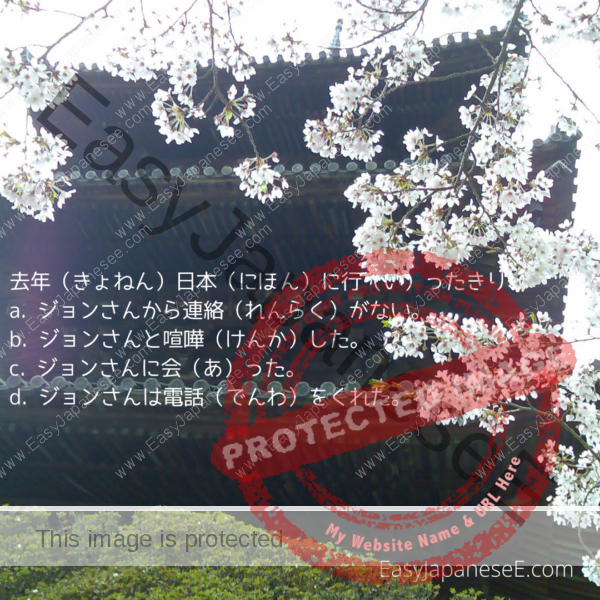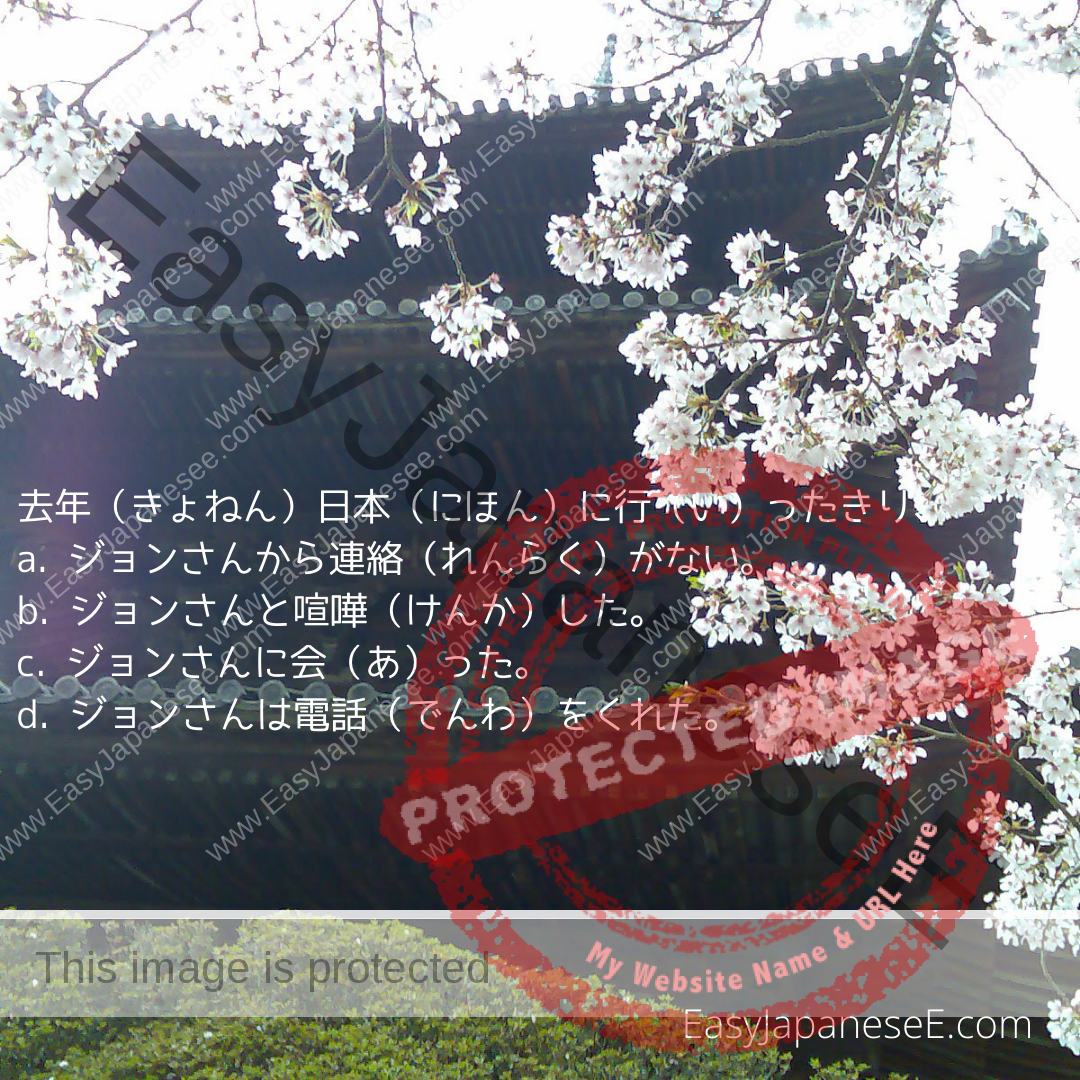
Today’s Grammar Point: ~たきり・・・(ない)
Today’s grammar point is ~たきり・・・(ない), which means that after the action of the たform verb is completed,the condition described in the second half of the sentence is continuing. So the latter half of the sentence has to be describing an ongoing condition or has a negative ending indicating “have never… since ~.” In conversations, sometimes people pronounce it with a small っ between ~た and きり (so ~たっきり…) to emphasise ~ was the last of it.
Connections
- [たform verb] + きり…(ない)
たform verb = past plain form verb
Examples
去年日本に行ったきり、ジョンさんから連絡がない。(Today’s caption)
Since he want to Japan last year, I haven’t heard from John.今朝コーヒーを一杯飲んだきり、何も食べる暇がなかった。
Since having a cup of coffee this morning, I haven’t had a chance to eat anything.先週電話で話したっきり、母とは 話していない。
Since we spoke on the phone last week, I haven’t talked to my mother.あの作家はデビュー作を書いたきり、 何も書いていない。
That writer hasn’t written anything since he wrote his debut work.父は三年前に倒れたきり、意識不明のままです。
My father collapsed three years ago and remains unconscious.昨日その話を聞いたっきり、そのことで頭がいっぱいだ。
Since I heard about it yesterday, I can’t think of anything else.あの本はジョンさんに貸したきり、返してもらっていない。
I lent that book to John and I haven’t gotten it back.運転免許を取ったきり、一度も車を運転したことがない。
I have never driven a car after getting a driver’s license.去年のパーティーで着たきり、この着物を着ていない。
I’ve never worn this kimono since I wore it at last year’s party.
Variations
あれっきり: since then, since that time
あれっきりあの人とは会っていない。
That was the last time I saw him.それっきり: since then
それっきり何の消息もない。
There’s been no news of him since (then).
Answer to Today’s Question: a
a. I haven’t heard from John.
b. I had a fight with John.
c. I met up with John.
d. John rang me.
b. to d. are all one off action, so only a. can be used here.
If you liked this article, please share it with your friends using the social media buttons below. Also, your clicks on ads on this page help covering the cost of running this website. Your support will be much appreciated.

